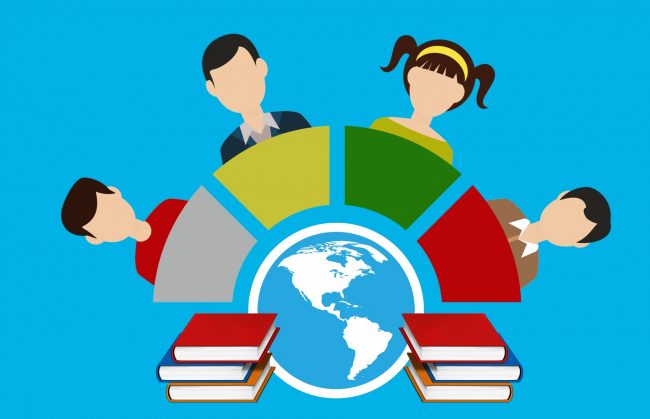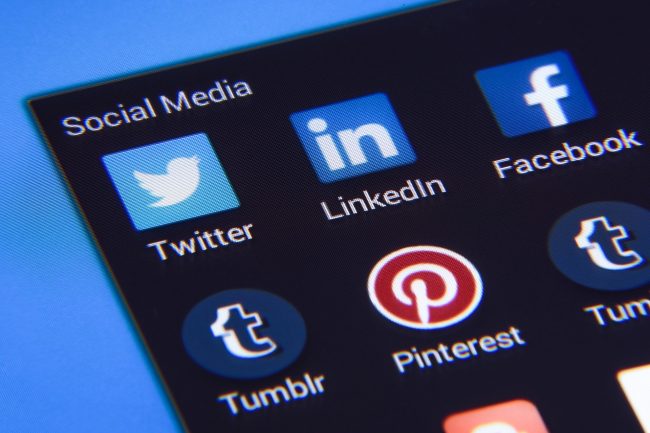Category: Professional Learning Networks
Develop positive and supportive connections with students and colleagues, building professional learning networks
Video Conferencing
Today we learned about video conferencing, accessibility, and modality.
Video Conferencing increases accessibility. Students who are unable to attend a physical class, whethere its because of location, disability, or mental health, students can attend class through video conferencing.
We considered a variety of questions through this session:
Why do we need to have required face-to-face experience as a class?
Should an instructor’s preference override student accessibility? Or student preference of modality?
Does/should modality bias exist?
Should we allow flexibility in modality accessibility? What are the implications?
Jess and I worked together on these questions through discussion, and she posted our answers on her twitter page.
How teachers design instruction and allow flexibility affects the levels of our students’ engagement. There tends to be a binary way of thinking in terms of modality: face-to-face or online. Researchers and instructors are working on changing this way of thinking. The more flexible an instructor is with their presentation of information and student access, the better and more accessible their instruction is. “Blended” instruction is a dead term. There is no increased access to learning afforded by blended learning and blended can not meet mobility needs.
Teachers carry bias when entering the field in terms of modality, whether they intend to or not. It is important that teachers are aware of these biases, and work to break them down and extend past their comfort zone in order to accommodate all of their learners. Once teachers provide freedom, location is no longer important or an obstacle. I have been fairly biased in terms of face-to-face instruction, as I have tried online coursework, and it was not effective for my learning. I have come to realize how allowing more flexible modalities and different points of access will directly impact the inclusiveness and acceptance within my classroom community.
I have linked some examples of successful Video conferencing and alternatives to face-to-face instruction, and places for further research.
Privacy and Safety – Jesse Miller
Today we had the pleasure of having Jesse Miller come and speak to our class about privacy and safety on the internet. I have never understood how the internet works as much as I did after this presentation. Miller focused on the role that technology has within an educator’s personal-life and classroom. “We always need to be learning more about the tools human beings are using that are always evolving”: this quote is one of the first things that really stuck with me during the presentation. Although new and evolving technology can be scary and hard to understand, I have realized that the more we know the better; that we can understand the impact we are making, and the impact it has on our lives. This quote doesn’t necessarily focus on technology, but the overall human experience. Technology and screens are the new normal, and that normalization is also multifaceted. Another aspect of the internet that Jesse focused on was the by-product of anything that we interact with on the internet. Ads, google-home, and proving you are not a robot all have by-products that are helping improve and have innovative effects.
The next important aspect that Jesse focused on was “network citizenship”. This section of the presentation highlighted the concept of digital identity, and who you decide to present yourself as on the internet: Parent, friend, professional, educator, etc. When applying for jobs, or in a professional setting, parents and bosses at your job will judge you based on your persona on the internet. We are the first generation where the majority of things that we’ve done in our past is online. This part was particularly stressful to think about. Past generations embarrassing or immature moments were typically held in year books and photo albums. Now, all of our past is on the internet, whether we want it there or not. Jesse depicted the importance of communicating with friends and family about your personal boundaries of what you are comfortable friends posting of you on the internet. In terms of use of mobile technology by educators, Jesse spoke about the importance of balancing professional expectations. In the current social climate, parents feel as if given the fact that they can access you 24/7 means that they should be able to. Teachers are already bombarded by long work days, and having to bring work home for program planning and grading. One of my classmates mentioned a site called Fresh Grades where teachers can post upcoming events and what children will be learning within weeks of school so that they are not bombarded by emails all of the time. Another wonderful thing about Fresh Grades is that its an online tool to communicate with families where all of the data is stored within Canada, and therefore is following privacy codes.
Another part of Miller’s presentation that I found impactful was his idea that as parents and teachers we need to figure out what kids are doing with technology and engage and participate with them. Technology can be used as a distraction for both parents and students, but if we are able to find ways to make technology an educational experience, teachers, parents, and students will be more engaged. The majority of articles that parents are engaging with that talk about technology are written by parents or teachers, not researchers. This means that only half of the evidence is making up 100% of the value in their minds. It is important for teacher and parents to look into research, who did it, and how they are doing it. Another aspect highlighted in this section was about teacher and student accountability in terms of cellphones in the classroom. If students are bored, they are more likely to need more stimulation, and therefore, will end up being on their cellphones. If students give respect to their teachers, the brain, and learning environment, they are more likely to be stimulated: “when teachers treat their classroom like a team sport, there is more regulation and accountability”.
As future teachers, we hold a lot of power in the information that we have, and what we do with it. Digital consent is something that I have been aware of for a few years now. Given the fact that Ive work with at risk youth for 6 years, consent is an extremely important thing within my jobs. I have taken multiple courses and signed multiple documents that have to do with privacy and media consent. Jesse highlighted multiple important questions to ask yourself before taking or posting information: did you ask permission?; are you sharing information without informing the person it may impact?; are you aware that illegal consent on your device may impact your life in a variety of ways?. His main point was that you need to share information with care.
The last impactful piece of information that Miller shared was a quote from John Culkin: “we shape our tools and therefore, our tools shape us”. The tools we shape, such as technology and social media, become part of our culture.


